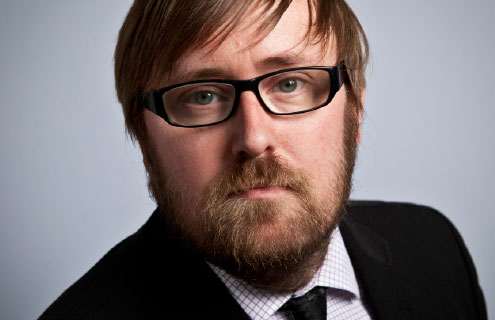SunGard
David Selwood
10 June 2014
Managed services is difficult to pinpoint, but securities finance and collateral management professionals should take note, says SunGard’s David Selwood
 Image: Shutterstock
Image: Shutterstock
What is a managed service?
This really is the key question. Managed services is a catch-all term that encompasses a framework of services constructed around our clients’ needs.
Let me give an example. When talking about infrastructure managed services, you are talking about creating a solution that allows you to plug directly into something that SunGard is hosting, with crossover also available on to application expertise and services. With application managed services, you are plugging into SunGard’s expertise and ability to deliver services, support and development tools.
Managed services can be the best of both worlds, in that firms that operate in the securities finance and collateral management space can work with a vendor that understands how the business works. A solution can be customised to fit a need. If a firm wants an application managed service, where staff work with specific people and deliver services around the particular area of a business, that is an option. That same firm, if it expresses the desire, can expand into development services, with the option of acquiring hardware or plugging into a hosted solution.
One size does not fit all because no two clients are the same. Perhaps someone is not interested in having a hosted solution, but that does not preclude them from the discussion with SunGard about managed services. It just opens up a different avenue of managed services. SunGard’s role is to deliver the managed services that the client really needs.
The beauty is that these services can easily be combined and delivered, added to or adapted according to each client need in an ongoing, changing business environment.
Does this suit a firm of a particular size?
SunGard works with all sizes of clients in all types of markets. On the smaller end of the spectrum, a firm looking at managed services often wants a complete solution, because its core focus is the business and it does not want the overheads that come with large applications and information technology infrastructure. SunGard wants to talk to those firms as much as the opposite end of the scale, such as large Tier 1s whose primary driver is a desire to bring multiple vendor relationships into one line item on the balance sheet, but know exactly what each is providing.
As a vendor SunGard wants to talk to all of the different types of market participants, as it is interested in, and capable of, offering solutions to all. We tailor solutions towards what the client wants. This includes clients looking at new installations or considering the suitability of new services and applications as part of a re-examination of an established relationship with SunGard.
SunGard is invigorating the services available to the market and helping our long-standing and new clients do as well as they can, in a supporting role so that we can share in the bigger story. It’s not about treading water—it’s about helping clients to advance and being the steady rock that they know they can rely on to build their business upon.
How can managed services help to combat the dreaded legacy system?
In our experience, we find that a multitude of systems can sometimes grow around a firm’s existing environment. Decisions are made to create special additional applications to address certain business needs. As a managed service provider, SunGard will examine whether that particular job can be done within a broader application, and if not, why not? There must be a market need to adapt the core application and, with the client’s help, the reduction in the proliferation of supporting environments can be achieved.
When considering managed services, SunGard, even as a vendor, makes a holistic assessment of securities finance. We take an overall view of the client ecosystem that is securities finance, or collateral management, within a firm and build a managed service to support it. These areas can be broader than a single application, so the discussion must often be had as to whether a certain legacy system needs to be incorporated, because there is no-one else to support it. If so, our wide market expertise allows us to manage that need and incorporate this across the managed service delivery.
Legacy systems build up for a number of reasons and clients sometimes do not talk to vendors about their needs. Building relationships through services can enable the collective benefit to be global, as what one client in one location is doing will directly influence the application going forward and what each of those applications do. SunGard is keen to listen and enable clients to help influence and drive the application. When you work closely in a managed services model, that conversation happens by default as information is always flowing back and forth, and that in turn helps our clients achieve their goals
← Previous interview
ISLA
Ed Oliver and Mark Barnard
Next interview →
Brown Brothers Harriman & Co
Robert Lees
 Image: Shutterstock
Image: Shutterstock 